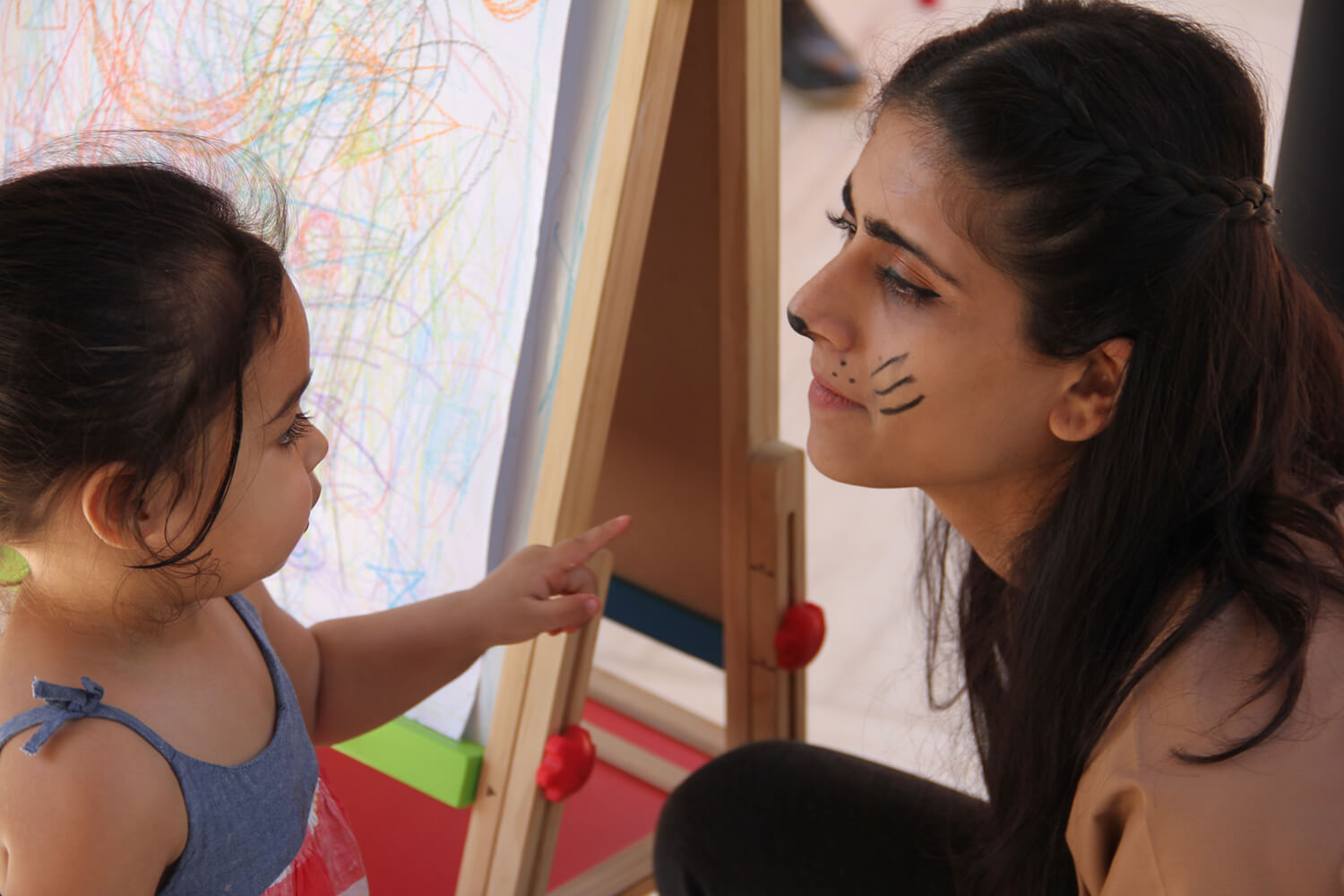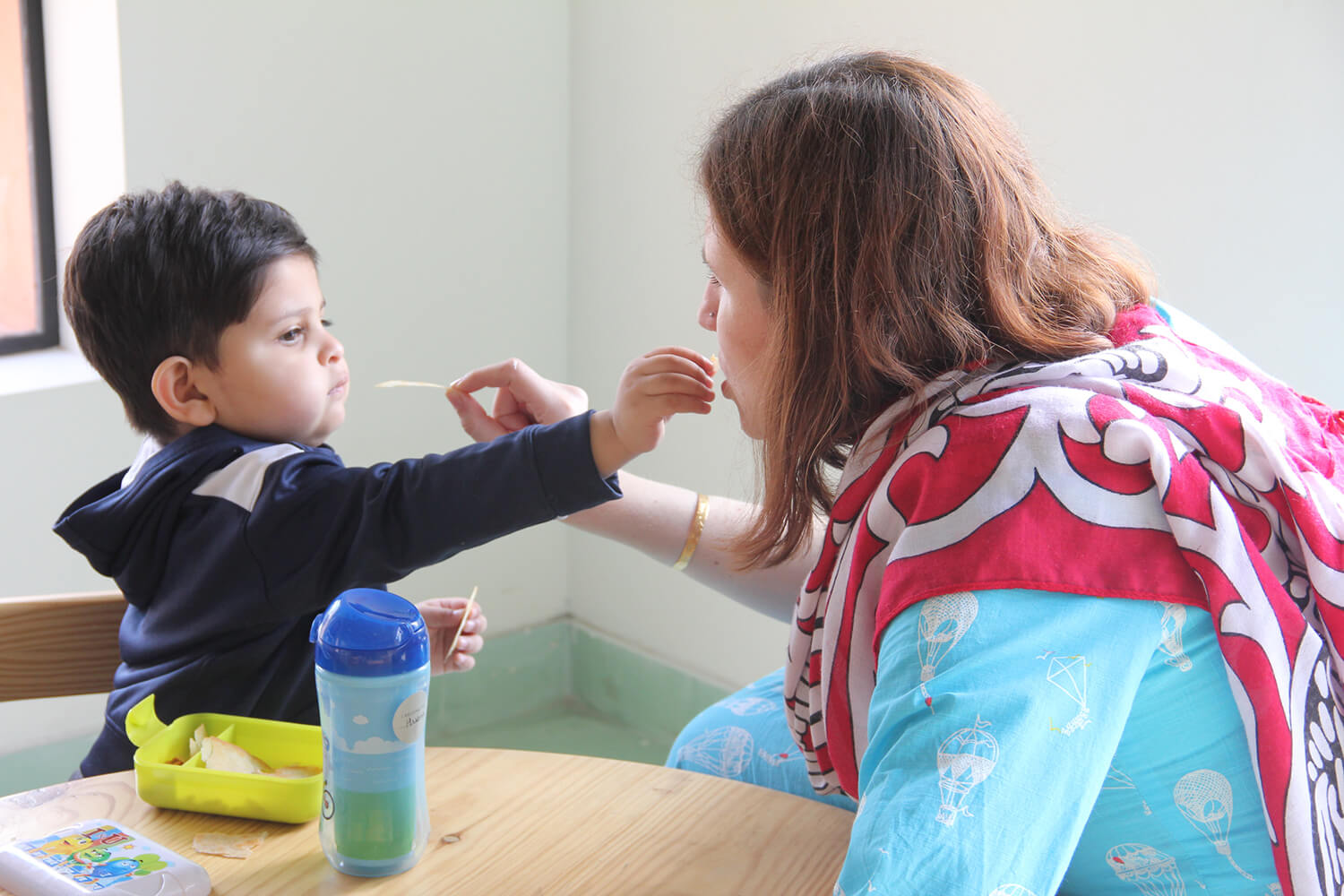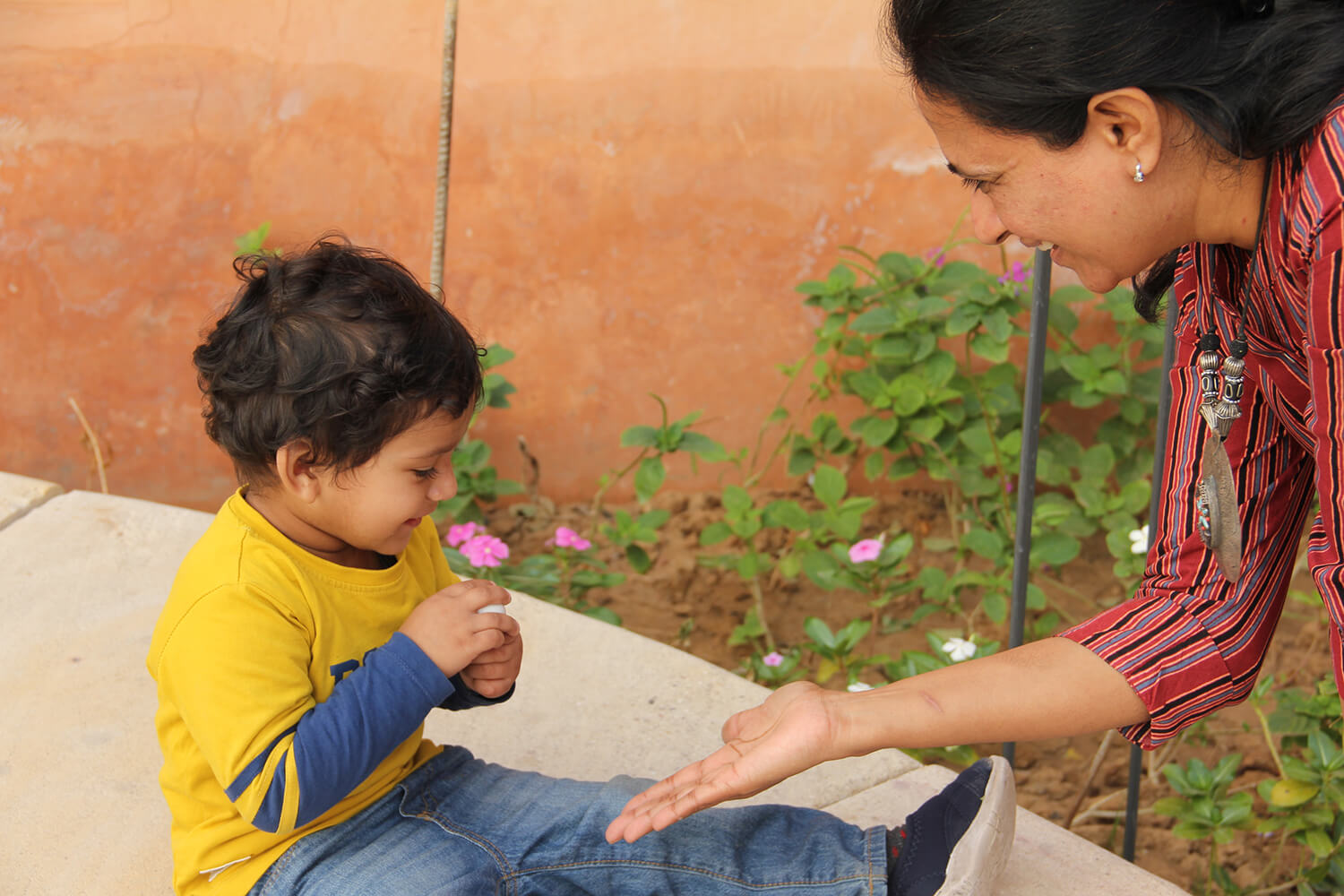28 Jun Adults As Role Models
‘Children are great imitators, so give them something great to imitate’
– Anonymous
A role model for a child, during their early years, is anybody who provides them with nourishment, encouragement, and nurtures them while being appropriately responsive. People serving as role models to children are all the adults who demonstrate to them how to learn, guide them towards different learning behaviors and facilitate their learning process. Parents, family, educators at school, and the community need to recognize that children will adopt their behaviors and moral decisions. The adult role models for children during their early years are important motivators in their future.
Learning occurs through sessions or experiences. It is both, a conscious and unconscious process, which occurs through study, being taught, or naturally. Learning is marked by acquiring knowledge, skills, or changed behavior.
When an adult makes a decision to become a parent, they make an unconditional commitment to guide their child for life. Adults could keep the following pointers in mind when interacting with their children:
- Focus on “Do’s” instead of “Don’ts”;
- Build feelings of confidence;
- Demonstrate clear ways to change behavior by changing situations and surroundings;
- Provide choices for children;
- Work with children;
- Set limits for children clearly;
- Listen to yourself and your children;
- Set a good example; and
- Show unconditional love to your children
Spokes Of The Wheel
Parents and families spend the most time with young children. The roles of parents are a facilitators and motivators are critical to child development. The decisions that parents take, irrespective of what they teach children through stories or experience sharing, are the ones that influence the children on a daily basis. Children learn best through modeling and imitation of behavior. These two are the foremost tools that infants possess while gaining information about the world through observation. The structure of parenting styles and values impact the child’s response and behavior.
Educators are the other segment of adults in the lives of children that act like role models and teachers. Children spent a part of their day with their educators, and these interactions affect the learning process. Educators instils and inspire values, goals, schemas, and traits in children and continues to shape the perspective of parents as well.
When educators and parents demonstrate consistent and similar modeling values, children develop their behaviors in a guided way. The developmental areas that are influenced by role models range from cognitive, psychological, emotional, and social. Children learn or mold their learning skills, self-esteem, values, goals, moods, behavior management, and traits through their educators and parents.
The Golden Rule
The trait of honesty is taught and promoted for children and adults. We’ve grown up listening to this golden rule, honesty is the best policy. Developing an honest persona works on a holistic basis, thoughts, feelings, and behavior. Whether children or adults, only if you think, feel and act on the same lines with the goal of being truthful (to yourself and your needs) can you achieve honesty as a trait.
Traits are ofen considered individually as we saw with honesty. When in the real world, we get an individual’s response or action based on multiple values in totality. Characteristics like discipline, time management, positive and negative reinforcement, respect for both adults and peers; influence the actions a child or adult will take during situations where they are display honesty. The early years of a child are filled with experiences they absorb, while we think toddlers are unable to comprehend what is going on around them, they are installing and learning myriad behaviors from adults. Only if adults practice what they preach, will children learn to imitate and choose to do the same.
A Lifelong Friend
Children begin to develop in the womb, that is where their understanding of a healthy lifestyle begins. The interactions between adults and children are central to their development. Since birth, infants’ brains are forming neuronal connections based on the experiences through their senses (touch, smell, taste, sound, and sight). The interactions in the form of hugs & kisses, sof physical touch, emotional reactions, facial expressions, colors and movements and conversations could be an influence on their social and emotional development.
A constantly responsive and atentive caregiver allows infants to trust the world unknown to them in a safe space. As infants and toddlers observe the world and their surroundings, they get a strong sense of their behavior standards. Modeling appropriate behavior for children, especially toddlers is as important as telling them about the appropriate ways of behavior – personal or social.
Evaluate and Behave
Parents have various roles to fulfill, it’s important that we regularly pause and evaluate our own social and emotional understanding and behaviors. As adults, decision-makers and independent thinkers, it’s important that we are aware of how to regulate our emotions and anxious thoughts, aware of how to behave in different social contexts, developing our conflict resolution skills, and how socially competent we are.
Say you had a bad day, rather than hiding how you’re feeling and showing a strong front to your child always, talk to them about how you’re feeling and why. Show them it is okay to feel different emotions, it maters how we respond and react to situations competently. Allowing children to understand your parenting style, develop their learning style, know that a person is his conflicts, emotions, and behaviors.
Allow your children to see you in the different situations in life, reacting to them humanely, with all range of emotions. Let them be our check meter. Once we are consciously aware that our behaviors serve as models for children to imitate, it’s easier for us to manage our own actions. We, parents, are the number one influence in our children’s lives. When they see us ‘walk the walk’ as we develop and be true to our identity in life, kids model to do the same.
A Good Role Model
- A good role model must demonstrate good decision-making about lifestyle choices such as food, exercise, reading, making conversation, amongst other learning behaviors. The child will notice the positive atitude and get the message that making an effort is more important than striving to be perfect.
- A positive role model shows respect to others, regardless of where they are. One of the first things children learn is how to talk to others. If they see the adults who are close to them treat others in a demeaning way, children will likely do the same. It is not enough to tell children that it is important to respect others. They need to see how it is done.
- Many adults have several interests, and it is important for role models to show children that curiosity can be a good thing. Life-long learning means to be interested in many aspects of life, whether it is music, outdoor sports, current events, or plumbing. When children see that their parents show interest and sometimes proficiency in many things, they get the courage to get out of their comfort zone and explore other activities.
- Exercise is extremely important for children’s health and proper development. A good role model might actively engage their child in some form of activity every day. Children do not need to play vigorous sports to be healthy, but at least a daily walk or game of tag is required.





No Comments